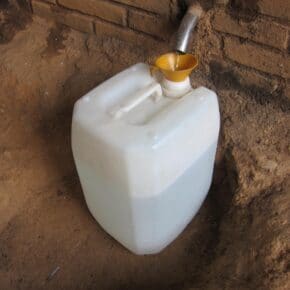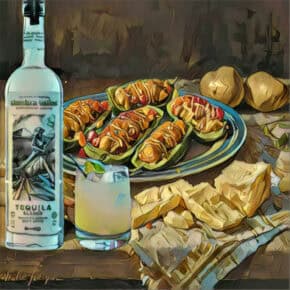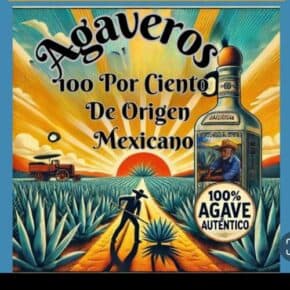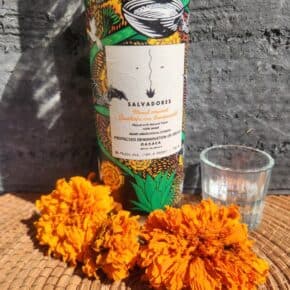What has long been rumored is now officially a class action lawsuit that implicates Casamigos and Don Julio. Read on for the latest development in our continuing coverage of alleged corruption in the tequila industry.
On May 5, the law firm Hagens Berman filed a class action lawsuit against Diageo North America “for falsely marketing its highly popular tequila brands and selling adulterated tequila to consumers.”
On January 13 of this year, we broke the story that agave farmers were accusing large tequila companies of illegally mixing tequila with cane alcohol, and that lab tests existed to support the allegations. We’ve since been waiting for the proof to see the light of day. It appears that day may finally be here. In the suit filed in the Eastern New York division of the US District Court, the Hagens Berman lawyers and their plaintiffs allege that flagship Diageo “tequilas” are mislabeled as 100% agave–making the products illegal in both the United States and Mexico.
When we asked Hagens Berman why they were taking on allegations that have been largely ignored by both Mexican officials and the international media, atorney Nathan Tarnor responded,
“Hagens Berman filed a class action lawsuit against Diageo because independent laboratory testing showed its tequila was adulterated and falsely labeled. It’s not fair to consumers if they pay a premium price for tequila but receive an inferior substitute product. It’s also not fair to agave farmers because major tequila brands are using cheap substitute alcohols rather than 100% agave as required by United States and Mexican law.”
He went on to note, “This drives down the price of agave and deprives agave farmers of a share of the profits that they would otherwise receive if the tequila brands were following the law.”
Are Casamigos and Don Julio 100% agave?
To quote the Class Action Complaint against Diageo, “Plaintiffs paid super-premium prices for Casamigos and Don Julio tequila, but they received neither a premium product nor 100% Blue Weber Agave tequila. Instead, an investigation of Casamigos and Don Julio tequilas has shown that they consist of significant concentrations of cane or other types of alcohol rather than pure tequila.”
The case against Diageo
According to the document, “The Additive Free Alliance (“AFA”), an organization dedicated to tequila industry transparency, has shown that it is possible to use Nuclear Magnetic Resonance laboratory testing to confirm if tequila has been adulterated with cane alcohol.”
The case rests on these tests, which could prove that Diageo is in violation of New York and New Jersey labeling laws and guilty of false advertising and misleading consumers: “If Plaintiffs and the proposed class members had known the truth of the ingredients in the Product, they would not have bought Diageo tequilas or would have paid less. As a result, Plaintiffs bring claims on their own behalf and on behalf of other consumers of Diageo Product.”
Rather gratifyingly, the brief extensively cites previous articles from “the authoritative website Mezcalistas,” using quotations from our on-the-ground reporting and interviews to illustrate the allegations of adulteration made by agave farmers and agrarian activists in Mexico.
Why is this case such a huge deal? Regulators and monied interests have been debating the components of tequila since at least 1949, when Mexico formally defined the spirit as a product made from 100% agave. Over the years, that definition has morphed, allowing for legal additives such as vanilla and glycerin to soften the edges of industrial production, as well as the introduction of a so-called mixto category, or “tequilas” that can now be made with up to 49% sugars from other sources–often cane alcohol.
The 90s saw the rise of premium tequila, with Patron paving the way in the US for other high-end brands that proudly marketed themselves as 100% agave. Internationally, tequila grew in popularity and prestige, spawing an opinionated fanbase of hardcore enthusiasts. While mixtos are totally legal, aficionados tend to look down on any tequila that’s not 100% agave. This stems from a pervasive belief that the flavor of “good” tequila stems from good water, quality agave, and skilled fermentation and distillation. Diageo’s prestige brands have built their reputation on the 100% agave designation.
The battle between the Tequila Regulatory Council (CRT) and transparency advocates over legal additives has been well-documented, but the damning allegations of illegal adulteration have been ignored by larger publications–both in the US and in Mexico. We imagine that’s about to change.
But can they win?
Diageo is a giant in the alcohol industry, with a portfolio that spans the globe. In 2017, the corporation acquired Casamigos for almost one billion USD. Diageo publicists touted Casamigos as “the fastest growing super-premium tequila brand in the US.” Meanwhile, Don Julio is marketed as a “luxury premium tequila” and is among the most popular tequilas on the market. In other words–Diageo has a lot to defend, a lot to lose, and a lot of money to make sure it doesn’t lose. But their opponent is formidable.
Hagens Berman is a powerhouse that trades on class action lawsuits against major corporations. For instance, the firm has filed 11 cases against various divisions or entities at Amazon, and successfully settled a massive case on behalf of victims of the Exon Valdez oil spill, a reflection of their penchant for environmental litigation. Hagens Berman took on Enron, and their most recent announcement is a case against Apple. In other words, these guys have the firepower to seriously threaten a global spirits conglomerate.
As we’ve covered, agave farmers have long been protesting abuses by “big tequila” and have been regularly alleging adulteration since at least October of 2024. Readers who have been following the story in Mexico may feel whiplash to find themselves across the border, and on the eastern seaboard.
Who is suddenly making noise in New York and New Jersey? Hospitality industry professionals who’ve been buying Diageo products under the false assumption that the “super premium” spirits are made from 100% blue agave.
The current plaintiffs are Avi Pusateri, Chaim Mishulovin, and Sushi Tokyo Inc. Avi Pusateri is a bar consultant and a specialist in kosher cocktails. He has been outspoken about additives in tequila on his personal Instagram, Jazz Age Cocktails. (Which reflects his personal opinions and should not be viewed as case-related.) Chaim Mishulovin is a self-described “serial entrepreneur” with an emphasis on kosher restaurants. Sushi Tokyo Inc. is a New York corporation, with five restaurants in New York. We approached Pusateri and Mishulovin for comment but, unsurprisingly, neither are advised to speak on the case at present.
But this roster of plaintiffs has the potential to get bigger—much bigger. The brief states Pusateri and Mishulovin are filing against Diageo on behalf of themselves and “others similarly situated,” making room for other plaintiffs to join the case–basically anyone in New York or New Jersey who bought a bottle of Don Julio or Casamigos within the statute of limitations. The plaintiffs are requesting a trial by jury.
If the plaintiffs were to win, it’s unlikely that most individual consumers would walk away with much money from the lawsuit, but the significance of the case is massive.
In addition to seriously undermining two of the most popular tequila brands in the world (and one of the largest alcohol corporations), the attendant publicity will likely be a serious blow to the CRT’s* credibility. The organization has emphatically maintained that it is carefully monitoring tequila for any form of adulteration. If the allegations are true, these corrupted Diageo tequilas are proof that the agaveros have been right all along.
*We have contacted the CRT, which has previously declined to answer our questions related to the allegations of adulteration.












How do you join the lawsuit? I’ve bought so much Don Julio over the years
Reach out to the law firm that filed the brief and find out. Here is the link that goes straight to the firm’s page about the lawsuit – https://www.hbsslaw.com/cases/casamigos-don-julio-tequila
That shit fucked me up